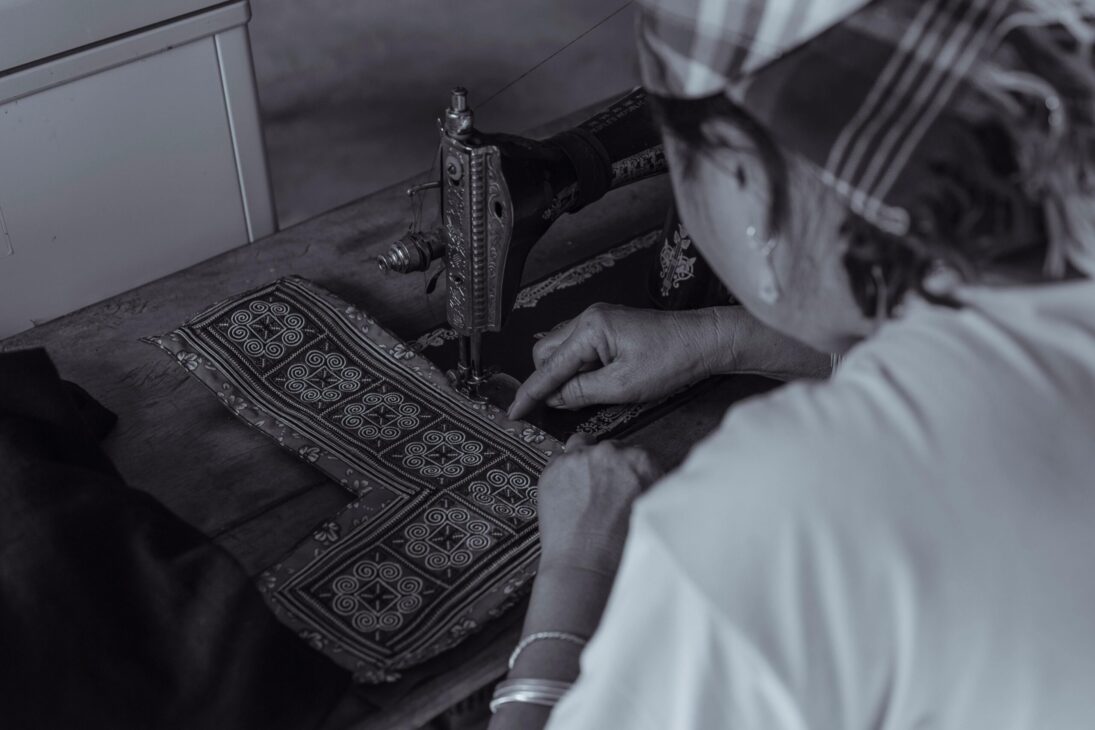The elderly woman’s hands move rhythmically as she describes how her grandmother taught her to weave the intricate pattern taking shape before us. Though I don’t speak her language fluently, I understand perfectly—not just through my translator’s words, but through the rhythm of her gestures, the pride in her posture, the way sunlight catches the silver threads in both her hair and her textile. I’ve visited countless artisan workshops before, but I’ve never truly listened to the stories woven into each creation until now.

The conscious explorer understands that we are never merely passing through a place—we are temporarily writing ourselves into its ongoing story while it simultaneously inscribes itself upon us. This recognition transforms our relationship with travel in profound ways:
How Narrative Transforms Ordinary Travel
Travel, at its most profound, is not merely a change in location but an invitation into stories—those of the places we visit, the people we encounter, and the evolving narrative of our own lives. When we approach exploration with narrative awareness, we transcend the role of passive observer and become active participants in a living story that began long before our arrival and will continue long after our departure.
The conscious traveler understands that every landscape bears the imprint of countless narratives—geological, historical, cultural, personal. By engaging with these stories rather than merely collecting experiences, we develop a deeper relationship with place that transforms tourism into pilgrimage.
The Elements of Narrative Travel
Preparation: Research as Reverence
Before embarking on your journey, immerse yourself in the narratives that have shaped your destination:
Literary Landscapes
Seek out stories written by those with intimate knowledge of the place:
- Novels by local authors rather than just travel guides
- Poetry that captures the emotional essence of the landscape
- Historical accounts that reveal the evolution of place over time
- Myths and folklore that illuminate cultural values
Narrative-Building Questions
As you research, ask yourself:
- What recurring themes emerge in stories about this place?
- Whose voices are centered in the dominant narrative, and whose are marginalized?
- What stories am I bringing with me about this destination?
- What narrative am I hoping to find or create during my journey?
Story-Focused Preparation
Create pre-departure rituals that honor the narrative dimension:
- Create a reading list specific to your destination and begin it at least one month before departure
- Research oral history projects connected to your destination
- Learn the basics of how to ask for and listen to stories in the local language
- Identify locations connected to significant narratives that might not appear in conventional guides
During Travel: Cultivating Narrative Receptivity
Once in your destination, specific practices can enhance your ability to recognize, receive, and participate in the stories unfolding around you:
The Art of Narrative Listening
Develop skills that allow you to receive stories with depth and respect:
- Practice the “three-breath pause” before responding to someone sharing their experience
- Learn to ask open-ended questions that invite storytelling rather than facts
- Note your internal reactions to stories without immediately expressing judgment
- Observe how body language and setting influence the stories being told
Creating Space for Exchange
Intentionally design opportunities for meaningful narrative encounters:
- Choose locally-owned accommodations where proprietors have deep connections to place
- Seek out multigenerational establishments where stories are part of the heritage
- Allow extra time in your schedule for unplanned conversations
- Consider small group experiences led by community members rather than large commercial tours
Documenting with Narrative Integrity
If you choose to record or share stories, do so ethically:
- Always ask permission before recording someone’s story
- Consider how your documentation might honor or diminish the original narrative
- Distinguish between stereotypes and authentic personal accounts
- Reflect on whether your interpretation adds meaningful context or imposes your own narrative
Beyond Souvenirs: Stories as Sacred Artifacts
The most valuable treasures we bring home from our travels cannot be packed in suitcases. Consider these practices for honoring and integrating the stories you’ve encountered:
Ethical Story Stewardship
Recognize the responsibility that comes with carrying others’ stories:
- Distinguish between stories you’ve been given permission to share and those shared in confidence
- Consider how your retelling might impact the communities or individuals who entrusted you with their narratives
- Acknowledge the limitations of your understanding as an outsider
- Create appropriate contexts for sharing that honor the original storytellers
Personal Narrative Integration
Explore how encounter with other stories has transformed your own:
- Journal about moments when another’s story challenged your assumptions
- Identify recurring themes in the stories that resonated most deeply with you
- Consider how your personal narrative has expanded through these encounters
- Notice which stories you feel compelled to tell repeatedly and what they reveal about your values
Creating Narrative Continuity
Find ways to maintain connection with the stories you’ve encountered:
- Establish correspondence with storytellers when appropriate
- Support organizations that preserve oral histories in places you’ve visited
- Incorporate elements from significant stories into your daily rituals
- Create art, writing, or other creative expressions inspired by the narratives you’ve received
A Life Recipe: The Story Exchange Ceremony
This practice creates space for meaningful narrative exchange during your travels, transforming casual encounters into sacred moments of connection. Consider it a template that can be adapted to various cultural contexts.
Ingredients:
- One local beverage traditional to the region
- A small, locally-made object you can give as a token of appreciation
- A quiet location with minimal distractions
- 30-60 minutes of uninterrupted time
- A physical or digital journal
- Optional: a small recording device (if permission is granted)
Method:
- When you encounter someone whose story resonates with you, respectfully express interest in a deeper conversation
- If they’re amenable, suggest a specific time and comfortable location
- Bring a traditional local beverage to share, demonstrating your interest in their culture
- Begin by sharing a brief personal story that reveals something authentic about yourself
- Ask open-ended questions that invite narrative rather than facts: “How did you come to do this work?” rather than “How long have you been doing this?”
- Practice the three-breath pause before responding to anything they share
- Express gratitude for specific elements of their story that moved you
- Offer your small token as appreciation for their time and openness
- Ask permission before documenting any aspect of their story
- Later, in your journal, record not just what was said but how the exchange affected you
The Emotional Experience: This ceremony transforms transactional tourist encounters into genuine human connection. By creating intentional space for story exchange, you acknowledge the sacred nature of personal narrative and create the conditions for mutual recognition that transcends cultural differences.
The Ethics of Narrative Travel
As we incorporate storytelling into our explorations, certain ethical considerations become essential:
Power and Privilege in Storytelling
Be mindful of the dynamics at play in narrative exchange:
- Recognize how your identity influences which stories you have access to
- Consider whether economic disparities create pressure for locals to perform narratives for tourists
- Acknowledge that your interpretation is shaped by your own cultural context
- Resist the urge to collect stories as souvenirs without meaningful engagement
Avoiding Narrative Exploitation
Certain practices diminish rather than honor the stories we encounter:
- Using dramatic elements of others’ stories primarily for social media engagement
- Presenting complex cultural narratives as simplified entertainment
- Focusing only on stories that confirm your pre-existing beliefs about a place
- Centering yourself in stories where you were merely witness
Creating Reciprocal Narrative Relationships
True narrative exchange involves mutual vulnerability and benefit:
- Be willing to share your own authentic stories rather than just extracting others’
- Consider how your presence might contribute positively to local narratives
- Follow up with those who shared significant stories with you
- Find ways to amplify important narratives through ethical channels
From Passive Tourism to Narrative Co-Creation
The conscious explorer understands that we are never merely passing through a place—we are temporarily writing ourselves into its ongoing story while it simultaneously inscribes itself upon us. This recognition transforms our relationship with travel in profound ways:
- We begin to measure the value of our journeys not by the number of sites seen but by the depth of stories exchanged
- We develop greater patience with the uncomfortable or challenging aspects of travel, recognizing them as essential plot developments rather than inconveniences
- We cultivate awareness of our own role in each place—whether as respectful listener, thoughtful participant, or in some cases, unwitting disruptor
- We return home changed not just by what we’ve witnessed but by the narratives we’ve been privileged to enter
The luxury of narrative travel lies not in exclusive access but in exclusive attention—the increasingly rare ability to be fully present for the stories unfolding around us. This quality of attention transforms ordinary journeys into sacred texts, revealing the extraordinary narratives woven into seemingly ordinary places and lives.
As you prepare for your next journey, consider not just what you hope to see, but what stories you hope to encounter, what narratives you wish to understand more deeply, and how you might honorably write yourself, however briefly, into the living story of another place.
What untold stories await in your next destination? And what stories of your own might you be ready to share?
© 2025 Ether & Opulence™ | Life Recipes for Conscious Luxury








